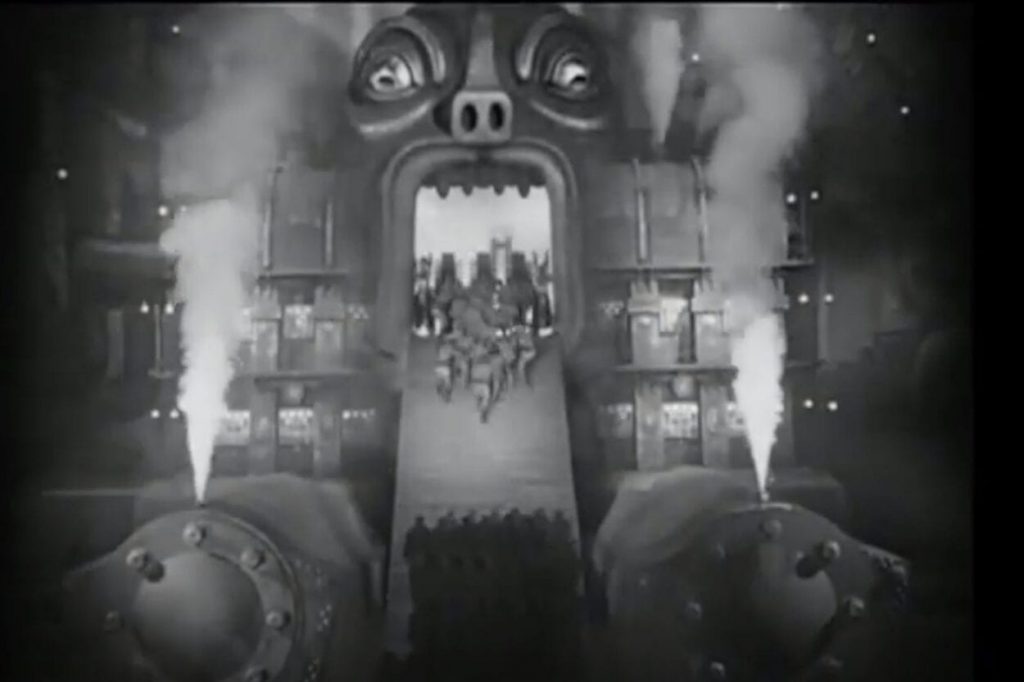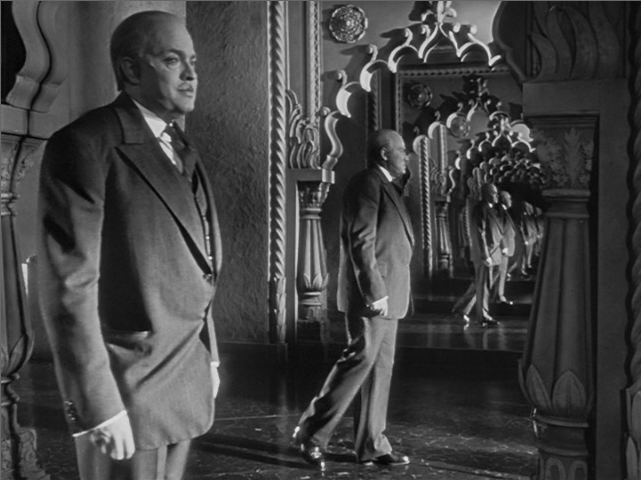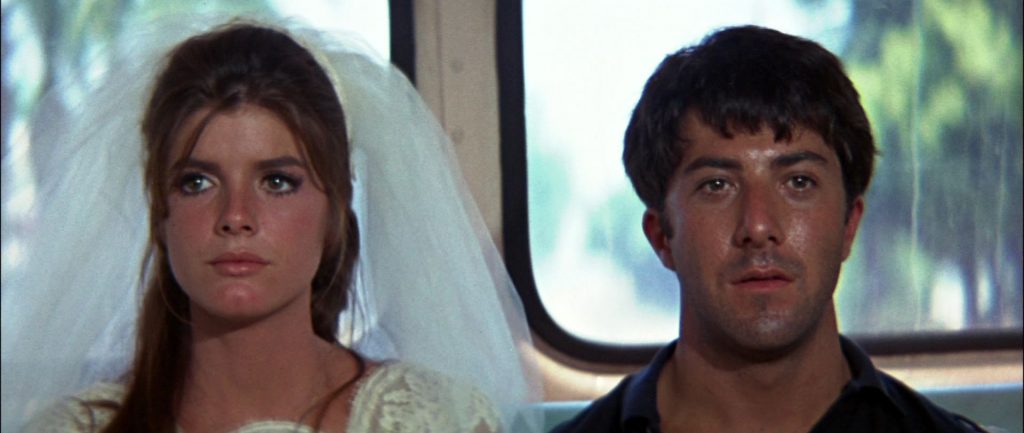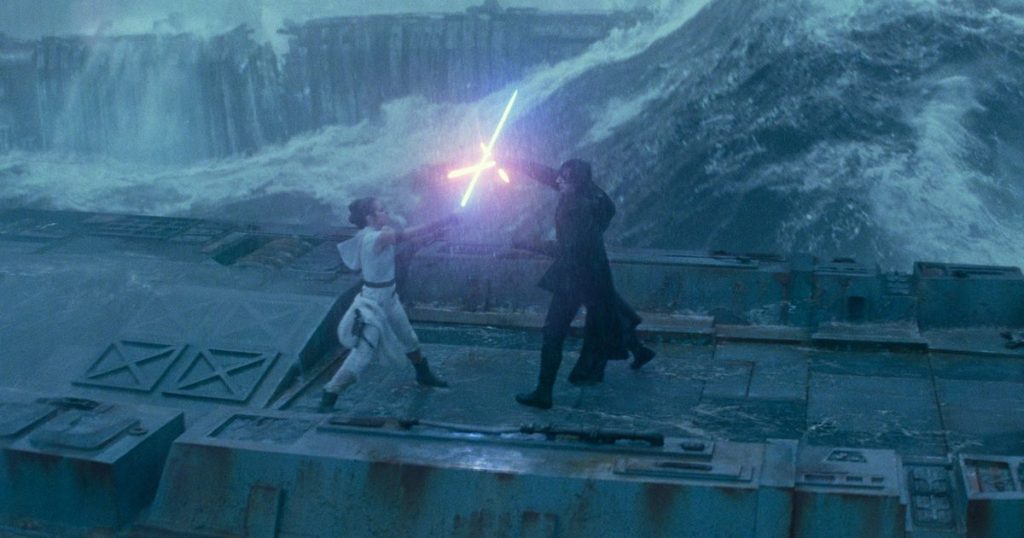The Shift Change, Metropolis (1927)

One of the early masterworks of the silver screen, Metropolis examines the industrial revolution’s effects on humanity. In this scene, workers march in rigid lockstep. They exit a monstrous factory, the scale of which makes them seem small and insignificant. They are almost indistinguishable from one another, due to the drab uniforms they wear and the fires of industry casting dark shadows over their faces. Metropolis directly references the ancient pagan god Moloch, a deity that demands human sacrifice to be sated. In this new age of mechanical progress, does technology serve man, or does man serve technology? This question resonates with audiences to this day.
The Ruination of Charles Foster Kane, Citizen Kane (1941)

Citizen Kane is a masterwork of the silver screen, crafted by auteur director and lead actor Orson Welles. The film is a character study, following the life of the titular Charles Foster Kane. Kane begins as a brilliant, charismatic, and principled young man. Tragically, his own pride and ambition grow year by year, eventually displacing all that was once good in him. This climactic scene sees Kane old and alone, having just cast out the woman who was his last connection to humanity. He wanders small and aimless inside his immense and ostentatious mansion, a potent symbol of his own humanity being lost in his outsized desire to be a Great Man of History. The film calls to mind the Biblical proverb “For what is a man profited, if he shall gain the whole world, and lose his own soul?” This question resonates with audiences to this day.
The Terror of Getting Exactly What You Want, The Graduate (1967)

Legendary actor Dustin Hoffman was the breakout star of The Graduate, a masterwork of the silver screen. The film expertly tells a timeless story. Young Benjamin Braddock, fresh from school, must now forge a life for himself. But Benjamin is disinterested plotting a course for the future. He spends his time day drinking and having morally dubious dalliances with an older woman. He is at the same time both listless and self-destructive. Is he overwhelmed at the enormity of choosing his own path? Cynical about society’s expectations? Some mixture of both, or neither? In The Graduate’s final act, Benjamin realizes that he loves Elaine, the daughter of the older paramour he’d been seeing. He interrupts Elaine’s in-progress wedding to another man, and they run away together in a fit of romantic rebellion. The film closes on a shot of their excited faces slowly fading to a kind of stunned sobriety. “Now what?” their expressions seem to ask as the credits begin to roll. Indeed, each time we fall in love, or reach a goal, or pass some milestone in life, joy always seems to subside and the uncertainty of the future settles into the space where that joy used to be. How does one find happiness, and can you ever make it last? These questions resonate with audiences to this day.
Killing an Evil Space Wizard with Laser Swords, The Rise of Skywalker (2019)

The supposed final chapter in the modern American mythos that is Star Wars is a masterwork of the silver screen. This energetic film tells the classic tale of an evil space wizard who died decades prior coming inexplicably back to life, and how his secret granddaughter must collect various baubles and trinkets that will guide her to his location so she can kill him. This scene of their final confrontation seems to pay tribute to history’s greatest storytellers, as we witness an old man screeching with laughter as he shoots lightning out of his fingertips at a woman who is holding two glowing swords. She seems to intuit that she needs to cross the swords into an “X” shape, and this maneuver is, of course, the key to defeating the ultimate evil of the universe once and for all. The Rise of Skywalker left audiences in a state of awe. The film raised many, many, many, many questions. These questions resonate with audiences to this day.

Leave a Reply